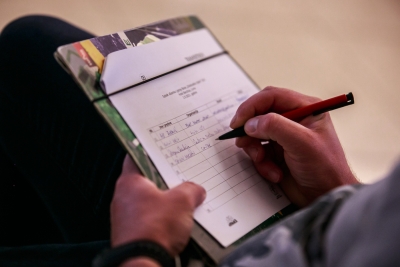Access to information on environmental issues, public participation in decision making, and access to an independent judiciary; the governments of EU member states, along with candidate countries and post-Soviet states, have all promised to protect all of these rights. However, the space for civil society continues to shrink in many countries. Citizens are unable to attain justice, according to the shadow reports from non-governmental organizations.
“In post-Soviet countries and the Western Balkans, many citizens’ rights remain on paper only. The laws often read as progressive, but in reality, state authorities hide information and data and discourage the public from participating in decision making, and justice is unenforceable. Legal protection in the EU is much stronger, but in some countries, we can observe large cuts to citizens’ rights in legislative procedures,” explains Martin Skalsky, an expert on public participation from Arnika, a Prague based non-governmental organization.
That the situation is deteriorating is confirmed by the fact that 16 out of 47 states did not publish their reports on compliance with the provisions of the Aarhus Convention for the recent period (2018-2021) (5). Some of the reports assess the situation only formally and conceal existing issues. The upcoming Meeting of the Parties should endorse the reports on violations of the rules by 13 countries and the European Union, drafted by the Compliance Committee (6), and order states to take necessary measures.
The shadow reports show that the reality is often shockingly different from what is written in the laws technically. Non-governmental organizations have wide experience with solving particular cases and are in touch with local communities, so their evaluation mirrors the issues that ordinary citizens face. They request that the governments keep their promises and secure democratic space for citizens in decision making regarding environmental issues.
“Many years of experience show that control mechanisms are too weak, and are systematically circumvented by a large number of states. The Aarhus Convention should consider how to enforce compliance with the rules, or how to intervene effectively against those countries which are in long-term disregard of the rules and violate environmental rights,” Martin Skalsky suggests.
Further reading:
[1] The Aarhus Convention, also known as the Convention on Environmental Democracy, entered into force on 30 October 2001. Its signatories are the countries of Europe and the former Soviet Union and the European Union as a party. Recently, Guinea-Bissau became the first party from Africa. Based on the example of the Aarhus Convention, the countries of Latin America recently adopted a similar Escazu Convention. The Aarhus Convention guarantees the right to environmental information, public participation in decision making, access to justice, and protection of the defenders of the environment from persecution. More on the Aarhus Convention
[2] Statements of the leading authors of the shadow reports on the implementation of the Aarhus Convention:
Belarus: “Belarus continues to be in systematic non-compliance with its obligations under the Aarhus Convention. The defenders of the environment and non-governmental organizations are being severely persecuted and their situation is significantly deteriorating. All the steps taken by the Ministry of Natural Resources and the Aarhus Centre in the past to change the legislation and practice will not make any sense till the persecution stops and the rights of its victims are restored.” Marina Dubina, recently liquidated NGO Ecohome
Bosnia and Herzegovina: “Under political or economic influences, the application of the Aarhus Convention is still lagging behind. Ignorance and the lack of capacity of state clerks in the course of providing information, poor promoting of the processes in which the public can participate, and protracted judicial and administrative proceedings, together with the lack of coordination between municipal, city, cantonal, and entity authorities, are just some of the hindrances that have been repeated year after year. Civil society desperately needs effective tools to keep struggling to preserve what our country can be proud of - its natural environment and natural resources.” Ratko Pilipovic, independent lawyer cooperating with the Coalition for Rivers
Croatia: “Although some progress can be seen in access to information in environmental matters, apparently we are witnessing a totally different direction in access to justice. The situation is pretty serious, especially in challenging decisions made by the government itself. Clearly, there is still a long way ahead for Croatia to implement the Aarhus Convention because of the lack of political will.” Zeljka Leljak Gracin, Zelena Akcija
Czech Republic: “In 2018, the right of the public to participate in the proceedings was fundamentally restricted. Non-governmental organizations cannot participate in the vast majority of permit processes, which also leads to a reduction in their activity in the proceedings in which they have the right to participate. Public participation is thus almost exclusively ensured only by the owners of neighbouring properties.” Petra Humlickova, independent lawyer cooperating with Arnika
Greece: “It is not rare that the national legislator and the administration breach the Convention, introducing provisions and practices that practically render the Convention inactive. The NGOs are working hard to detect, showcase, and criticize such initiatives, to mobilize civil society, and push through necessary changes. In the time of the environmental crisis, it is more urgent than ever for Greece to shift from a culture of secretiveness and of treating public consultations as time-consuming and costly to an open data policy, proper public participation, and adequate remedies in cases of violations of environmental rights.” Anna Vafeiadou, WWF Greece
Iceland: “Ten years after Iceland ratified the Aarhus Convention, non-governmental organizations still have no legal standing in a court of law - access to justice is limited. Vested interests in energy, construction, and fisheries feel very threatened by equal access to justice.” Arni Finnsson, Iceland Nature Conservation Association
Moldova: “For the past ten years, the environment has not been on the government priority list. Since 2014, Moldova has not submitted any report on the implementation of the Aarhus Convention. Since 2015, no policy document outlining a schedule and concrete steps to implement the Convention has been approved by the government. The draft 2020-2022 Action Plan remains a mere intent on paper and has never been open for public consultation.” Natalya Zamfir, Association of River Keepers Eco-TIRAS
North Macedonia: “The implementation of the Aarhus Convention is not systematically monitored. The public and relevant environmental civil society organizations were not sufficiently consulted in the preparation of the governmental report. We need an assessment with concrete, relevant, purposeful, and motivating conclusions that will be the driving force for improving the situation.” Natasha Dokovska, Journalists for Human Rights
[3] ENG 2021 The shadow reports on environmental democracy, prepared by the non-governmental organizations. (UNECE)
[4] ENG 10/2021 Seventh Session of the Parties to the Aarhus Convention (UNECE)
[5] Each country that is a signatory of the Aarhus Convention is obliged to prepare every four years a report on the state of legislation and also the practical implementation of environmental rights. The reports are available here.
[6] In a case when a certain state violates the principles of environmental democracy set out in the Aarhus Convention, citizens or NGOs can submit a complaint to the Compliance Committee. All cases are available here.


